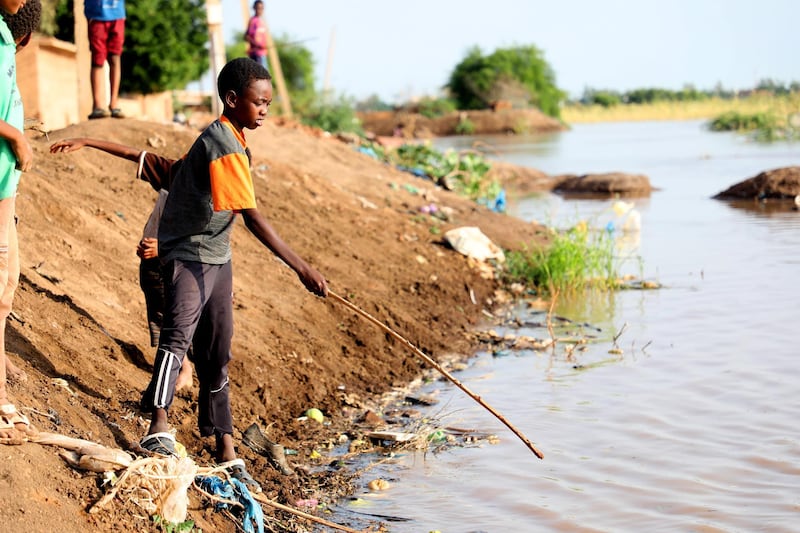Last weekend, Sudan was hit by massive floods, described by Sudanese Prime Minister Abdalla Hamdok as “beyond anything we’ve witnessed in living memory”.
Images of people submerged in waist-high waters, attempting to save themselves and their families and salvage what is left of their belongings, roused the sympathies of many. Yet despite the extent of the floods, the disaster has been widely under-reported.
The region had been struck by heavy rainfall since July. More than 100 individuals were killed, 100,000 homes were destroyed and half a million people across the country have been affected by the flooding.
Sudan’s entire territory was declared a natural disaster area, and authorities have imposed a three-month state of emergency.
Volunteers flocked by the thousands to help those affected by the catastrophe. This inspiring show of solidarity symbolises Sudanese resilience as the nation aspires to carve a better future for itself amid political transformation. In December 2018, peaceful protesters took to the streets and demanded the end of Omar Al Bashir's regime. Since then, a power-sharing deal has allowed for a military-civilian council to rule over the nation while the Sudanese prepare for elections in 2022.
Sudan’s government has succeeded in signing peace deals with all but one of the country’s many armed factions. It has also re-established stronger diplomatic ties with the US and brought Sudan closer to its Arab allies, in addition to seeking justice for crimes committed under Al Bashir’s rule.
Despite these positive developments, the country is suffering from an economic crisis compounded by the coronavirus pandemic. The floods have come at a particularly difficult moment.
In its time of need, Sudan must be able to count on the international community for help. Sheikh Mohamed bin Zayed, Crown Prince of Abu Dhabi and Deputy Supreme Commander of the Armed Forces, has reaffirmed the Emirates’ solidarity with Sudan, and the UAE has already sent 100 tonnes of aid in the wake of the natural disaster.
The floods have contaminated hundreds of drinking water sources, hindering access to clean water. This puts a spotlight on the necessity of efficiently managing natural resources to meet a population’s basic needs, especially as climate change becomes a growing threat in Africa and the Middle East. A report by the Australia-based Institute of Economics and Peace showed that Sub-Saharan Africa faces a great number of ecological risks in the near future.
Long-term planning and international co-operation will prove vital to ensuring that these challenges are overcome. In an interview with Sky News Arabia on Wednesday, Mr Hamdok said that the Grand Renaissance Dam, built near Ethiopia’s border with Sudan, could spare his nation from more floods in the future. Khartoum has repeatedly stated that experts from both countries must co-ordinate with one another so that the dam project is a success for all affected nations.
The floods present a dire risk to all that Sudan has achieved, though the country’s political progress show that its people and leaders are far-sighted and resilient. While Sudan is a nation very much in flux, with continued global support, it is headed for a bright future. Its aspirations are too great to be overcome by unwieldy tides.






